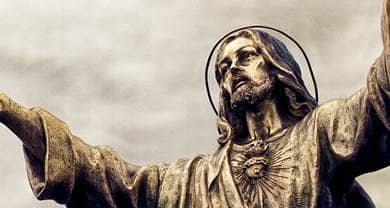- Trending:
- Pope Leo Xiv
- |
- Israel
- |
- Trump
- |
- Social Justice
- |
- Peace
- |
- Love

RELIGION LIBRARY
Lutheran
Vision for Society
The Lutheran vision for society derives from Luther's famous "Two Kingdoms" theology. This theology is an attempt to navigate the tension between the radical demands made by Jesus in the Sermon on the Mount, and the reality of life in this world. Luther argues that every Christian holds citizenship in both kingdoms. The Kingdom of God is the realm of freedom, love, forgiveness, and absolute equality. This is not (only) otherworldly, it exists in this world wherever the word is preached and the sacraments are administered.
There is also the secular kingdom, where there are distinctions of rank among humans, crimes are punished rather than forgiven, and humans use God-given reason to find their way. Both kingdoms belong to God, and they are mutually supportive rather than antagonistic. The secular kingdom maintains the order without which the church cannot exist, and the word and the sacraments cannot be preached and distributed. The Kingdom of God is the reason, finally, for the secular kingdom, provides its purpose, and preaches the gospel to it.
This Two Kingdoms theology has a couple of implications. It has in the past often been read as a kind of cynical disengagement with the world, and a justification for Christians to suffer rather than challenge unjust political structures. But the sociologist Peter Berger has made the case that it really is intended to function as an anti-utopian, practical guide. The Kingdom of God will not reign exclusively during history, whether that kingdom is conceived on the model of the political and social right, or the political and social left. Rulers and citizens, guided by reason (and the church) must do the best they can. They will finally be held accountable by God for their actions and the way they carried out their responsibilities; this is not an unleashing of unsophisticated Machiavellianism. It provides a warrant for Christians to engage their civic lives in the full knowledge that they are engaging the fallen world. Finally, since the secular kingdom is the realm of reason, being a Christian is not a necessary qualification for leadership. Luther himself stated that he would rather be ruled by a wise Turk than a foolish Christian.
As part of his vision for society, Luther's view of the end times must be mentioned. When Luther translated the New Testament into German, he did not give the Book of Revelation the same status as the letters of Paul. He felt it was an edifying book, and illustrated it to make the point that the pope was the anti-Christ (the Whore of Babylon wears a papal crown in Luther's Bible). But as the Reformation continued and opponents rose against him, he began to try to understand the symbolism of the Book of Revelation, because he firmly believed he was living in the end times. To this extent, Luther expected the literal second coming of Christ that would end history and usher in the exclusive Kingdom of God.
Like other Christians, there has been a shift within Lutheranism in the 20th century in North America. Lutherans were part of the broad Protestant consensus in the 19th and early 20th centuries called "postmillennialism." This is the belief that history will ascend toward the kingdom of God, and that this will culminate with the return of Jesus to rule for a thousand years before the end of time. The consequence of this belief is that Christians work to improve society as part of the ushering in of the Kingdom of God.
Following the modernism controversies of the 1920s most Protestant denominations split along conservative (or fundamentalist) and liberal (or modernist) lines. Conservatives, who felt dismissed by society, became "postmillennialists," which is a reading of Revelation that outlines a descending rather than ascending path of history, at the end of which Jesus returns to rapture, or rescue, his followers. The consequence of this belief tends to be a withdrawal from social causes (which in any case can only delay the Second Coming) and a focus on personal salvation (preparation for the rapture).










